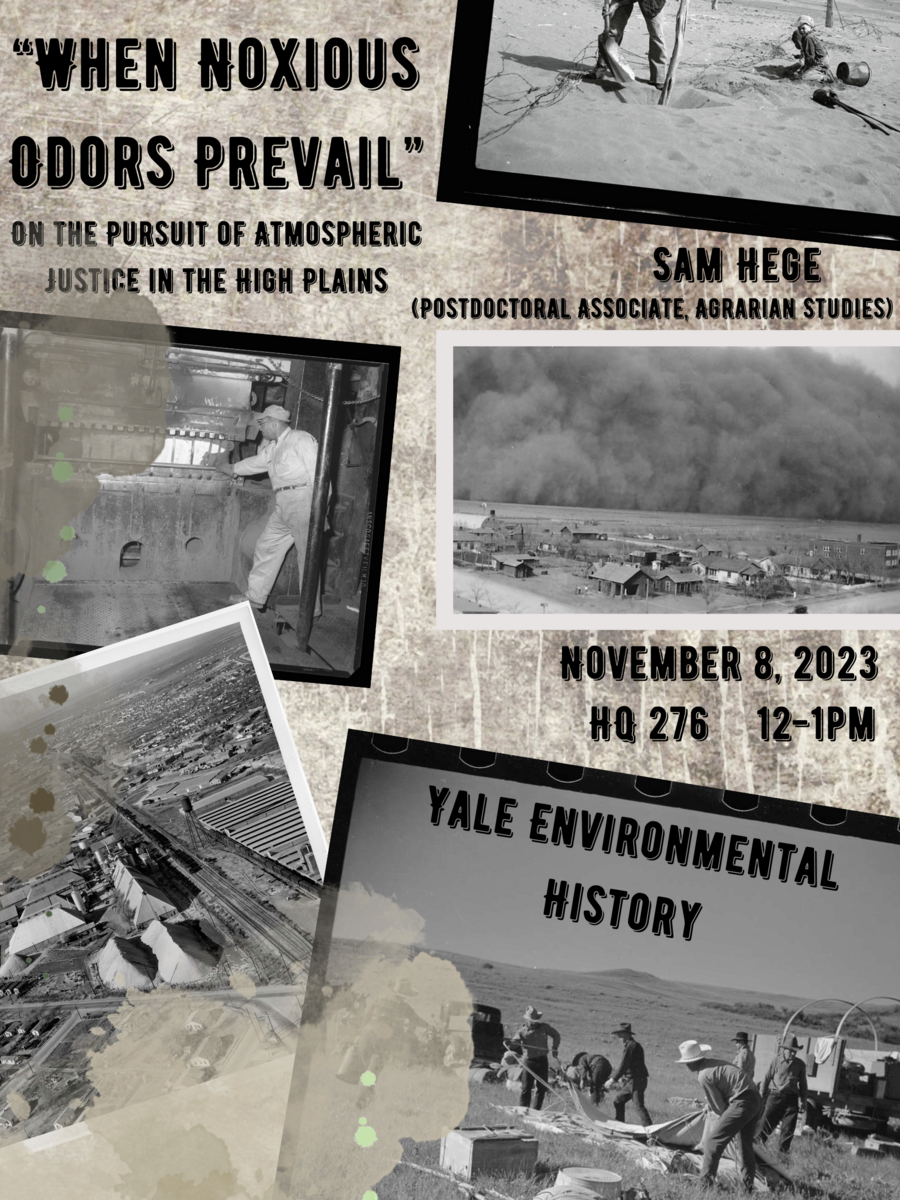‘When Noxious Odors Prevail’: On the Pursuit of Atmospheric Justice in the High Plains
‘When Noxious Odors Prevail’: On the Pursuit of Atmospheric Justice in the High Plains
Yale Environmental History is pleased to announce a lunchtime talk with Sam Hege (Postdoctoral Associate, Agrarian Studies) . A light lunch will be served at the event. Please write to environmentalhistory@yale.edu to request access to the paper which will be pre-circulated amongst attendees in advance of the workshop .
Abstract: In the mid-20th century, intensive efforts to suppress dust via groundwater irrigation throughout the Southern Plains of the United States sparked an unprecedented surge in agricultural production. Following a series of large-scale dust storms in the 1930s, which earned the region its enduring moniker, the Dust Bowl, many outside observers deemed this part of the country unsuitable to permanent farming settlements. To counter this malignant perception and to stabilize the local economy, Plains boosters, farmers, and politicians adopted new and extractive approaches to farming that could persist amidst even the most severe periods of drought. Although much has been written about this transition to industrial farming and its consequences for the Plains limited water supply as well as the American diet, scholars have paid little attention to the impact of this transformation for working-class Black and Latinx communities. As I argue in this paper, growing and processing industrial-scale crops on the Southern Plains depended on the creation of novel geographies and exposures to dust. To accommodate these material demands, farmers and their supporters mobilized a multi-scale campaign designed to concentrate dusts in communities of color and weaken possibilities for legal and regulatory interventions. While boosters sought to mystify these mechanisms of control by aggrandizing a universal experience with the High Plains atmosphere, migrant farmworkers and community activists engaged in multiple forms of resistance that highlighted the inequities of this system. By reconstructing these varied relationships to dust and its aftereffects, I show how racial conceptions of health, space, and atmosphere ultimately sustained the region’s transformation into an agro-industrial complex.
Bio: Sam Hege is a postdoctoral associate in the Program in Agrarian Studies at Yale University. He received his Ph.D. and MA in History from Rutgers University-New Brunswick and a B.A. from the University of North Carolina at Chapel Hill. His research broadly examines the entangled histories of the environmental justice movement, the politics of water, and the rise of industrial agriculture in the U.S. West. His current book project, “The Winds of Money”: Race, Work, and Water in the Texas Panhandle, 1900-1980, argues that the privatization of groundwater and the creation of precarious labor markets fundamentally interlinked the U.S. Sunbelt political economy and the American diet during the mid-20th century.
